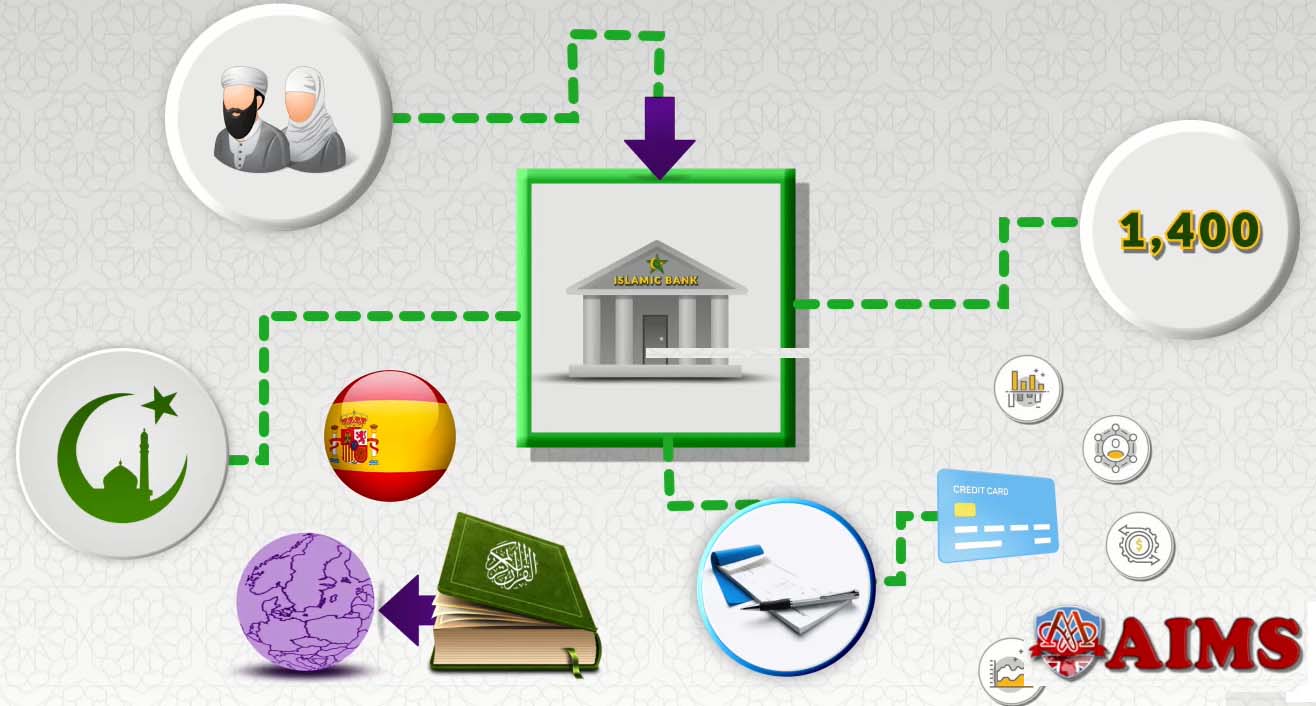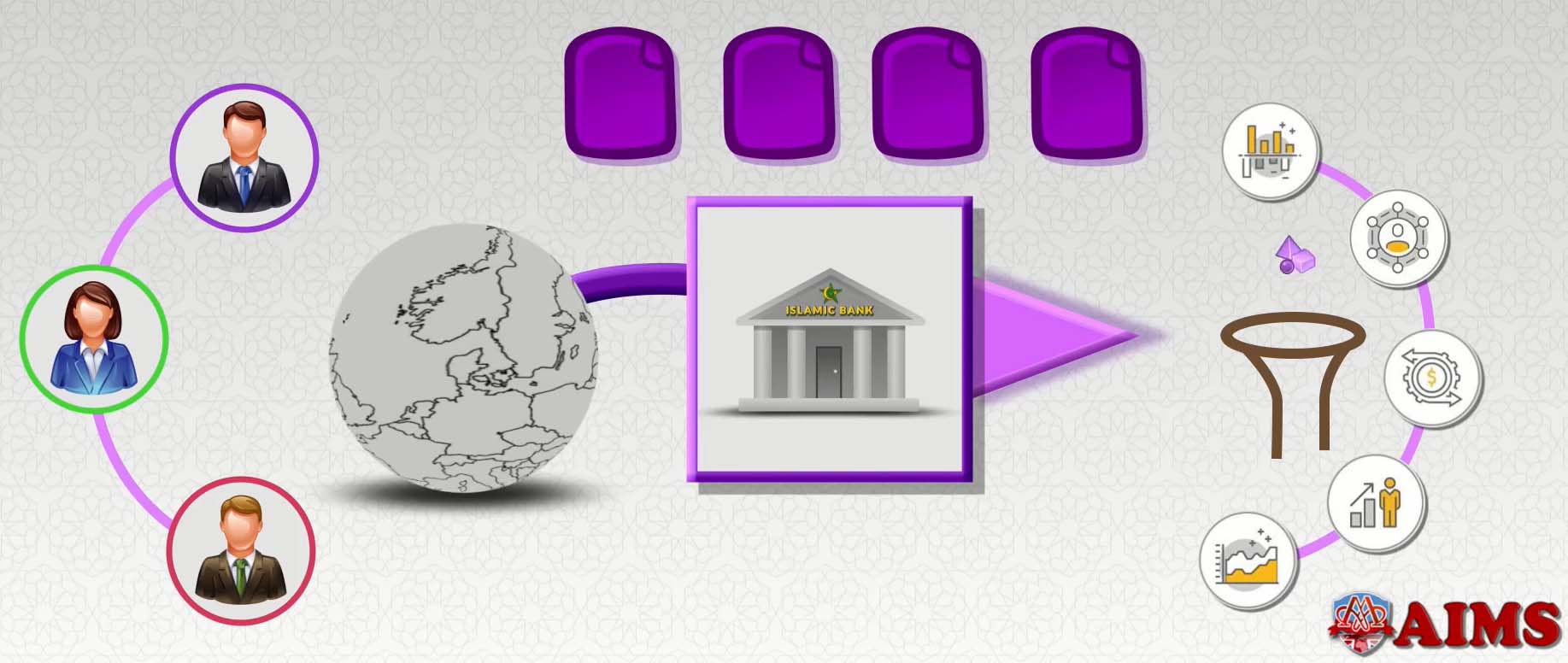History of Islamic Banking in Europe
The current trend of Islamic banking in Europe stems from its origins, which goes back much further than many people would think. The influence and scope of Islamic finance in Europe have been refined over the centuries and today is stronger than ever. The history of Islamic banking goes back to the origins of the Islamic faith, some 1,400 years ago. This form of banking used some of the traditions found in Abrahamic doctrines, while also developing into the modern form of using cheques and credit as found in modern banking. Guided by the sources of Islamic laws, Islam spread into many parts of Europe, establishing itself in Spain and influencing the continent in ways that still reverberate today.
Development of Islamic Banking and Finance in the European Union
Today, the Islamic banking industry continues to grow amid the challenges and opportunities that are present in Europe. There are good reasons why Islamic banking in Europe is on the rise, starting with the strength of the financial institutions that are based in Islamic countries. The combination of solid economics and sound banking practices has helped spur the growth of Western countries.
In addition, the globalization of the financial markets has contributed to the rise of Islamic banking and finance in the European Union. This means more investment opportunities, which means that Islamic banks are growing stronger and becoming even more prominent in Europe. Combine that with the improved business opportunities as companies from Islamic countries compete worldwide, and you have an institution that will only see growth for the foreseeable future.

Islamic Banking in Europe: 4 Key Challenges and Their Solution
There are challenges found in the Islamic banking in Europe system that must be addressed for continued success.
- Un-Ethical Practices of Islamic Financial Institutions.
- Competition from Western Banks.
- Growing Debt in Europe.
- Integration of Shariah Principles into the European Regulatory Framework.
1. Un-Ethical Practices of Islamic Financial Institutions
The key challenge for Islamic banking in Europe and other Western countries, such as Australia and the USA, is the unethical Islamic finance practices. Here are some realities regarding the comparatively poor performance of Islamic financial institutions in Europe:
- Islamic financial institutions are charging unjustified higher profits compared to their conventional competitors.
- The staff and management ignore basic Shariah rules and are involved in unethical practices in the name of Islam.
- The staff practicing Islamic financial instruments are mostly unaware of Shariah guidelines for the Islamic financial products and services.
Unfortunately, the key objective of most Islamic financial institutions is to take advantage of Muslims’ willingness to get loans from Islamic financial institutions, who do not want to get involved in Riba.
2. Competition from Western Banks
The competition for business will always be a challenge for Islamic banking in Europe, especially given the different parameters that European banks have to offer the public. While the sources of Shariah provide the guiding principles behind Islamic banks, it does mean that to compete effectively, an evolving method of reaching new customers must be followed.
3. Growing Debt in Europe
The growing debt crisis, which is putting many European countries on the brink, may offer the greatest challenge for all banks. Therefore, Islamic finance in Europe must be prepared for what might be a difficult time. Islamic financial institutions must offer products like halal mutual funds to grow the industry.
4. Integrating Islamic Finance into the European Regulatory Framework
Adapting the Western financial regulatory framework to accommodate the distinct principles of Islamic finance is a complex effort. However, an independent committee of Islamic finance in Europe is working to address these issues.
a. Role of the European Central Bank
- The ECB recognized Islamic banking and finance principles and has taken various initiatives to integrate Islamic finance into the European financial system while ensuring regulatory compliance.
- ECB is actively involved in formulating regulations that accommodate the specificities of Islamic finance, such as risk-sharing and asset-based Islamic financing.
b. Independent Committee of Islamic Finance in Europe
To promote the development of Islamic finance in Europe, an independent committee was established in 2009 by the European Central Bank (ECB).
- The committee aims to provide a platform for dialogue and cooperation between market participants, regulators, and other stakeholders.
- The committee also developed a common framework to regulate and supervise Islamic financial institutions in Europe.

Qualification for Islamic Finance Jobs in Europe
Because of the growth in Islamic banking, the need for financial professionals is greater than ever. For those interested in a career in this field, the first step is getting good understanding, especially in finance, to help them prepare for Islamic finance qualification.
In higher education, students will need to get the appropriate degree is finance with an emphasis on Islamic banking or financial practices. AIMS’ masters in Islamic banking and finance and online Islamic banking courses are two well-recognized qualifications in the Islamic finance field. Once you have received your degree, the next step is gaining the necessary experience in the right bank or financial institution. From there, you can continue the upward climb of your career either by staying at one institution or moving from one to another.

Future of Islamic Finance in Europe
If the above-discussed challenges and issues are resolved, the future of Islamic finance in Europe looks promising. According to a report by the International Shariah Research Academy for Islamic Finance (ISRA), the European Islamic financial market is expected to reach US$450 billion by 2030. This growth is also fueled by the increasing interest from non-Muslims in ethical and socially responsible financial services.
Key Takeaways
Islamic finance is a significant source of financing across many sectors in Europe, including Islamic mortgages, business loans, Sukuk or Islamic Bonds, and asset-backed securities. The industry is growing, with the number of Islamic financial institutions increasing across the continent. The industry can benefit from a large number of Muslim consumers and a large number of financial institutions to expand the market for their products and services. The development of new products, such as Sharia-compliant microfinance loans, is expected to address the limited availability of suitable products.
Frequently Asked Questions
Q1: What is driving the growth of Islamic banking in Europe?
Ethical, asset-based finance demand, links with OIC markets, and gradual regulatory support are boosting adoption across retail, corporate, and capital markets.
Q2: How does Islamic finance in Europe differ from conventional banking?
It avoids interest (Riba), uses risk-sharing, and anchors returns in real assets via structures like Murabaha, Ijarah, and Sukuk.
Q3: What are the main regulatory challenges in the European Union?
Ensuring tax neutrality, accounting alignment, and prudential treatment for asset-based contracts while maintaining a level playing field.
Q4: Which market opportunities are most promising?
Halal mortgages, SME equipment finance, infrastructure Sukuk, and ethical funds that appeal to wider European investors.
Q5: What operational issues do European Islamic financial institutions face?
Skill gaps on Sharia rules, governance inconsistencies, and pricing versus conventional peers—addressed through training and stronger oversight.
Q6: How can EU regulators better integrate Islamic finance?
Provide clear guidance on tax, true-sale, and capital rules, and use expert forums to harmonise structures with existing frameworks.
Q7: What macro risks from European debt affect Islamic banks?
Slower growth and credit stress can hit funding and asset quality, even for asset-backed, risk-sharing models.
Q8: Which skills help with Islamic finance careers in Europe?
Finance fundamentals, Sharia principles, and product knowledge (Sukuk, Murabaha, Ijarah), plus recognised qualifications and practical experience.
Q9: When are Sukuk appropriate for European issuers and investors?
When projects are asset-heavy and jurisdictions support true asset transfer and clear investor rights.
Q10: How can banks avoid mistakes when launching products?
Ensure genuine asset linkage, transparent pricing, strong Sharia governance, and early alignment with local tax and regulatory rules.
